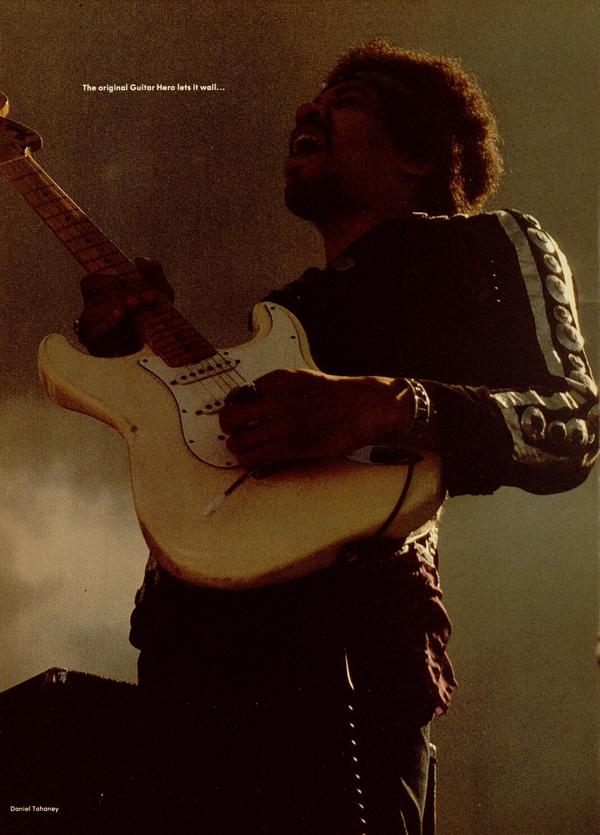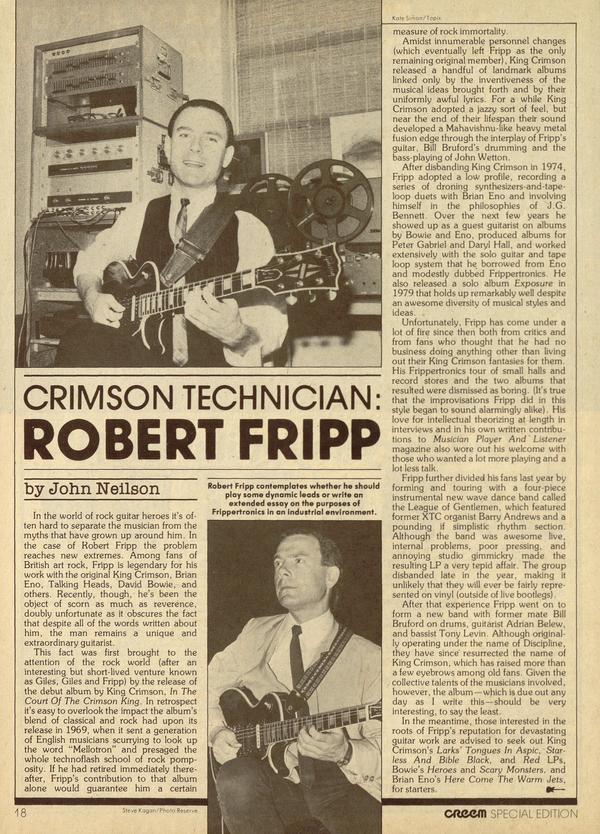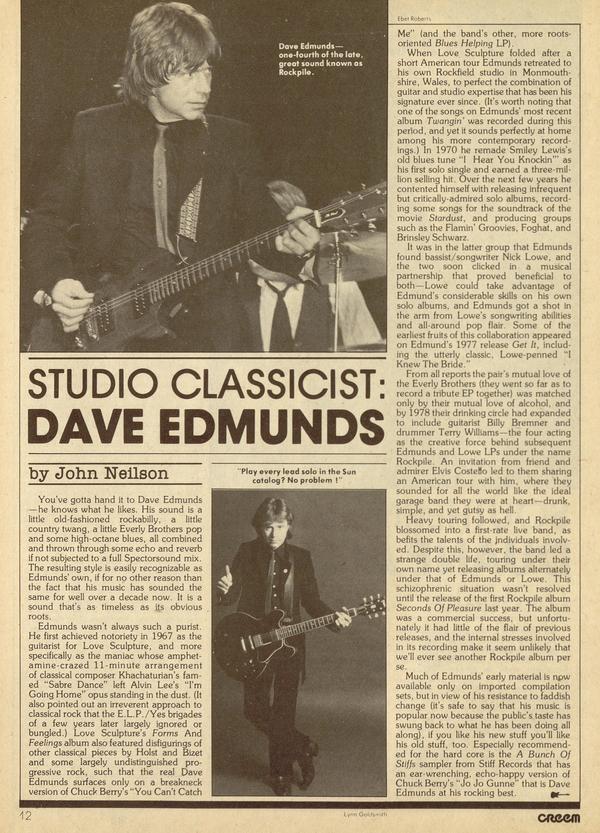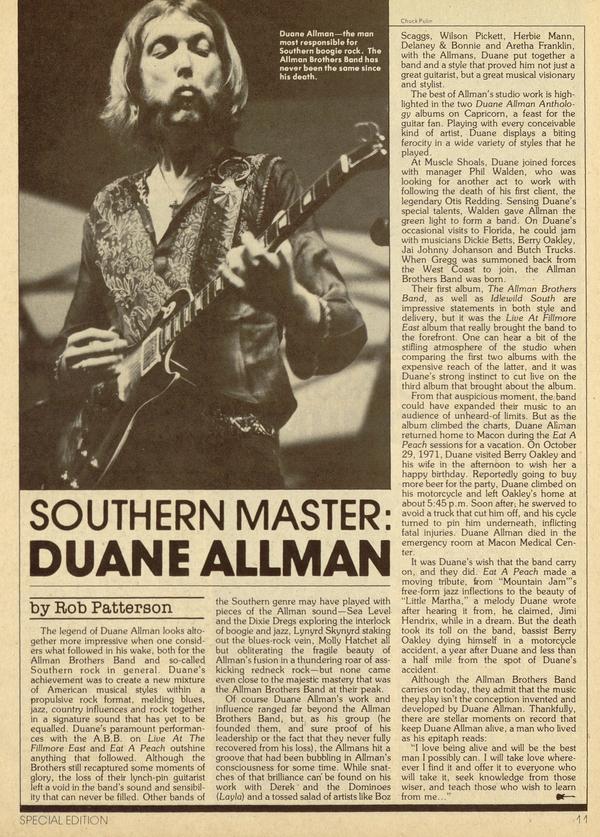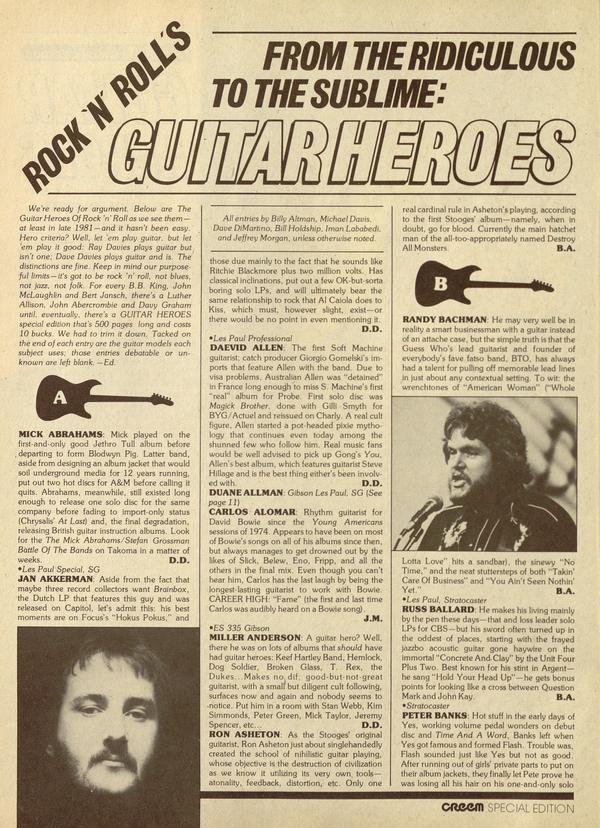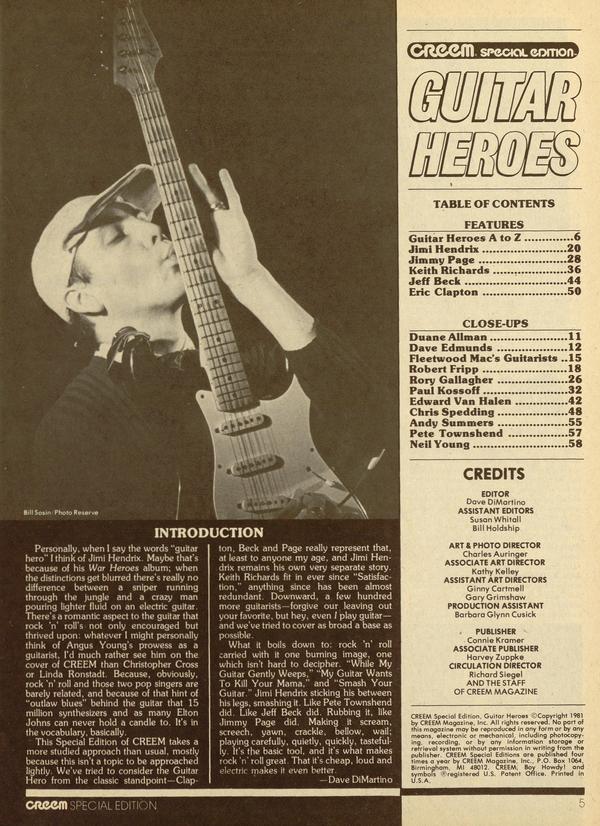THE FLEETWOOD MAC GUITARS
In 1966 Peter Green(baum) joined that breeding place for surrogate blues guitarists, John Mayall’s Bluesbreakers, as the replacement for a certain Mr. Clapton. Green spent a year there and garnered a monster reputation (give a spin to “A Hard Road,” if you wanna find out why).

In 1966 Peter Green(baum) joined that breeding place for surrogate blues guitarists, John Mayall’s Bluesbreakers, as the replacement for a certain Mr. Clapton. Green spent a year there and garnered a monster reputation (give a spin to “A Hard Road,” if you wanna find out why). But like so many Bluesbreakers before and after him, Green left to form his own band, with just a short stop to steal bassist John McVie and drummer Mick Fleetwood, then rounding things out with second guitarist Jeremy Spencer.
Billed as Peter Green’s Fleetwood Mac, they made their debut performance in the summer of '67 and were an instant smash. The music was purist white blues, inspired by Elmore James with lots of covers. Their first album went straight into the Brit charts and remained there for over a year. In mid-’68, Green added a third guitarist to the line-up, Danny Kirwan, which made the Mac the only band with three who all also sang and composed. Though there can be little doubt that Green was the star, Spencer remains a personal favorite of mine. He was a wizard with a slide guitar, and a splendid satirist who added tonguein-cheek country rock take-offs. Still, Green was the better composer, and at the end of ’68, the Mac’s first hit single— “Albatross”—showed just how far Green had moved away from his original twelvebar affectation. The song was an innovative instrumental and experimental masterpiece, and the end of the band as pure blues aficionados. In ’69 the Macs had hit after hit, two well worth mentioning here, their all time signature tune, “Black Magic Woman,” and the paranoid Green meister-work that (with the aid of hindsight) led the way to his leaving the group: “Man Of The World.” A haunting, blues-derived melody, it utilized minor chord changes against Green’s sob-story vocals and terribly disillusioned lyrics (“Shall I tell you about my life/and keep you amused for awhile”). The same year saw the release of Then Play On, but trouble was brewing in the ranks of England’s hottest band, and in May 1970, Green quit.


